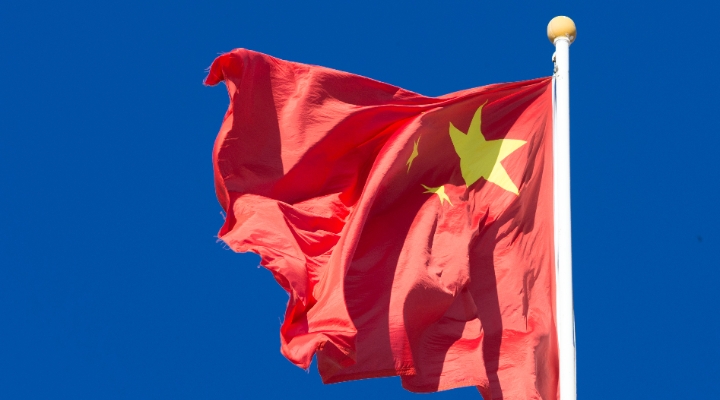
Chinese and Hong Kong stock markets continue to lose value. Last week, stock markets slumped to multi-year lows.
Confidence in the world's second-largest economy is evaporating and foreign capital is abandoning it, while the latest data show stunted growth and a growing malaise in the real estate sector, at the centre of which is the story of Evergrande.
In the past three months, the Morningstar China Index and Morningstar Hong Kong Index have lost 7% each, while the Morningstar Global Market Index has risen 10.7%. If we broaden the time horizon, things do not change: -26% and -27%, respectively, versus +15.5% over the past year (data in Euros, as of January 24 2024).
"This slowdown is structural in nature, driven by a sharp correction in the real estate sector that occurred in late 2021 and is still ongoing," says Amundi chief investment officer Vincent Mortier.
"In 2024, we expect housing prices in major cities to decline more rapidly, particularly as the supply of affordable housing increases.
“The difficult process of rebalancing from over-reliance on real estate, combined with the start of debt restructuring by the local government, is expected to put downward pressure on Chinese growth over the next three to five years.”
At this point, the question no longer seems to be whether growth will slow further, but whether China will be able to navigate a sustainable future. Productivity is at the heart of the new growth model identified by the authorities, with a renewed focus on technology and energy transition.
The Flight of (Active) Investors From China
The strong scepticism hovering over the Chinese stock market is reflected in the foreign investors' outflows. International managers have drastically reduced their exposure to the country in recent quarters, contributing to the index's decline. Last year, investors redeemed €2.9 billion (£2.5 billion) from actively managed China equity open-end funds domiciled in Europe, marking an annual organic growth rate of -6.6%.
If we take only the exchange-traded fund (ETF) universe, however, we see that in 2023, European-domiciled China equity ETFs grossed €340 million, with an annual organic growth rate of 6.15%. In three years (between 2021 and 2023), ETFs exposed to Chinese equities attracted nearly €4 billion in net flows.
What is China Doing About Market Pessimism?
The situation has reportedly even prompted the government to consider introducing a ¥2 trillion (about €260 billion), aid package aimed at stabilising the stock market through targeted purchases. The news was reported by Bloomberg News, citing its own sources.
Subsequently, the China Securities Regulatory Commission promised to make every effort to make the capital market function efficiently by cracking down on price manipulation and unusual trading activities.
Meanwhile, Jack Ma, co-founder and former chair of Alibaba (BABA), appears to have bought about $50 million worth of shares in the company in the last quarter after retiring from the public arena due to Beijing's 2020 crackdown. News of the purchase contributed to the stock's rebound.
Finally, in an unusual communication on Wednesday, the People's Bank of China anticipated it will cut the reserve requirement ratio for banks in early February to free up resources and support the economy. The 0.5% cut will provide ¥1 trillion of long-term liquidity to the market.
"The mix of news has had a positive effect on the market but the risk is that it may be ephemeral," explains Massimo De Palma, head of the multi asset team at GAM Italy.
"Too often hopes have been dashed, especially in the recent past,” he says.
"Aware of this, the central bank, a few hours after the announcement, unveiled new measures to counter the prolonged difficulties in the real estate sector, which over the years have weighed on business investment, undermined job creation and curbed consumer spending."
In short, acting effectively and restoring confidence in the market seems to be yet another gamble by the Chinese authorities.
Buy The China Dip? Only for Those With Patience
You might want to brave the China dip, but professionals encourage selectivity.
"From an investment perspective, the shift to a more sustainable growth model presents opportunities in the long run for Chinese assets, but also requires more selectivity in the short term to cope with the economic slowdown," says Amundi's Mortier.
As for equities, the French investment house maintains a positive view.
"Valuations are attractive and the long-term risk/return ratio looks attractive (especially for the domestic market), even taking into account another wave of downward earnings revisions in 2024, as consensus earnings expectations are still too high," it says.
There are also those who go further afield, such as Andrew Lapping, chief investment officer of Ranmore Fund Management (the UK fund house whose funds are not available in Italy).
He says "the slump presents a golden opportunity for investors."
"It's important to seize opportunities when they present themselves, but it's often difficult because the crowd is moving in the opposite direction," says Lapping.
"There are definitely risks in China, but there are risks everywhere, and it depends on what's in the price. In the last year, the S&P 500 has risen more than 20% while the Hang Seng has fallen 30%. It is not possible for the underlying corporate values to diverge to such an extent.
“This underperformance, particularly in the last month, has given us the opportunity to buy high-quality, well-capitalised companies at very low prices."
Is China Still the Future?
Whether or not one shares Lapping's enthusiasm, it seems at least logical to ask: if until a few years ago the investment industry was telling us China was the future, are we sure in this short period of time everything has changed?
This is the same question Pharus' management team is asking.
"China is an equity market with certain inherent characteristics, where there is now a margin of safety for the investor that was not there two years ago," reads a January 25 note.
"First of all, the -45% correction [from 2021 to today] we are experiencing is a normal correction China has experienced every four years since 2002.
"Today we find ourselves with valuations expressed in terms of price-to-earnings ratio at 9.95x, a level seen only four times in the last 10 years. Again, in 2021, when the investment industry was positive on China, the price-to-earnings value had hit an all-time high of 18x, double the current level."
In short, China has not changed much; instead, it is investors' expectations that have worsened.
"At this time and at these valuations, we believe China can represent an investment with a wide margin of safety," Pharus' analysis concludes.
Most of the Morningstar Medalist Ratings assigned in this space are not positive (Negative or Neutral) and only one ETF gets a rating of Silver. In fact, the nature of the indices tracked generally makes passive replication less competitive in this specific category. In this sense, the impact of fees is even more important.
The MSCI China, for example, has about 700 stocks. Over the past decade, the various index providers – and MSCI in particular – have added Chinese companies listed in the United States (November 2015) and began adding Chinese A-shares in May 2018.
In November 2019, MSCI completed all phases of inclusion of Chinese A-shares (with a 20% inclusion factor). As of the end of December 2020, the index excluded Chinese military companies sanctioned under the U.S. executive order. The index is very broad but may be too concentrated in certain sectors (consumer discretionary goods) or in certain names, such as Tencent (TCEHY) and Alibaba.
Further inclusion of Chinese A-shares remains an ongoing topic of discussion. Greater inclusion of these stocks would bring advantages (greater market representativeness), but also disadvantages (risk of front-running by active managers) to strategies looking to increase their holdings in mainland China stocks.
The FTSE China 50, on the other hand, does not include any Chinese companies listed in New York or Chinese A-shares listed on mainland China exchanges. Given the universe (only Hong Kong-listed Chinese companies) and the selection criteria (limit to 50 stocks), this index has a very concentrated exposure, with the top 10 names weighing 60% of assets and strong exposure to financial stocks relative to the category average.




























